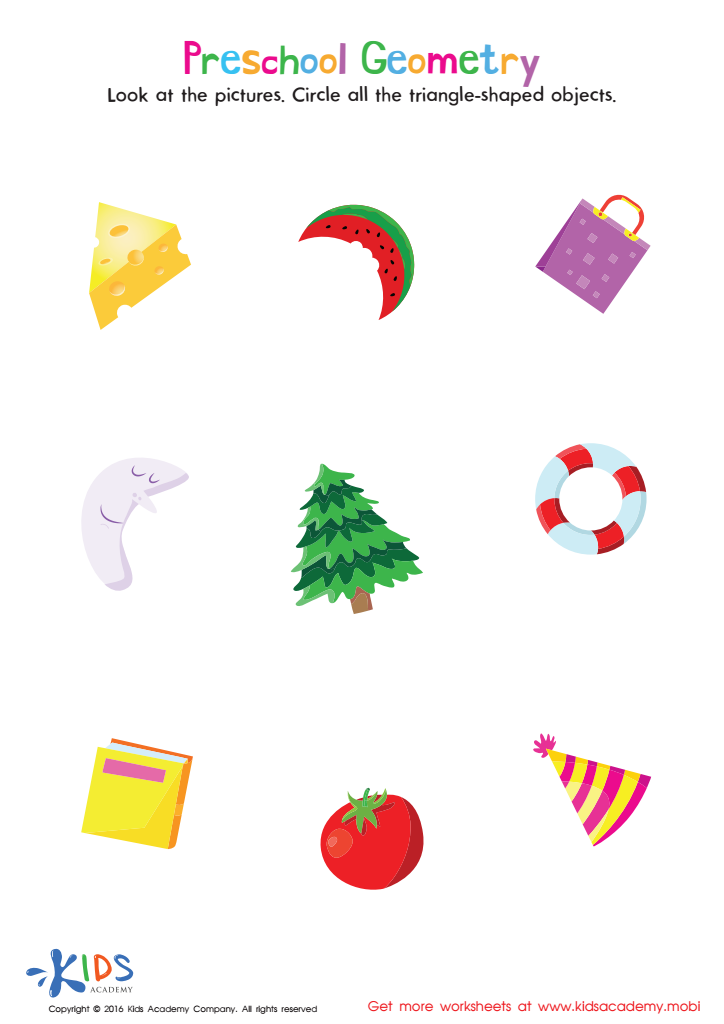Counting skills Normal Geometry Worksheets for Ages 5-8
6 filtered results
-
From - To
Enhance your child's counting skills with our engaging Normal Geometry Worksheets designed for ages 5-8! These printable worksheets combine foundational math concepts with geometry, allowing young learners to practice counting angles, shapes, and figures in a fun and interactive way. Each activity is crafted to boost numeracy and spatial awareness, helping children recognize patterns, understand geometry essentials, and develop confidence in their math abilities. Perfect for home or classroom use, our worksheets offer a variety of exercises tailored to little hands and curious minds. Start your journey towards mastering counting skills through enjoyable geometric challenges today!
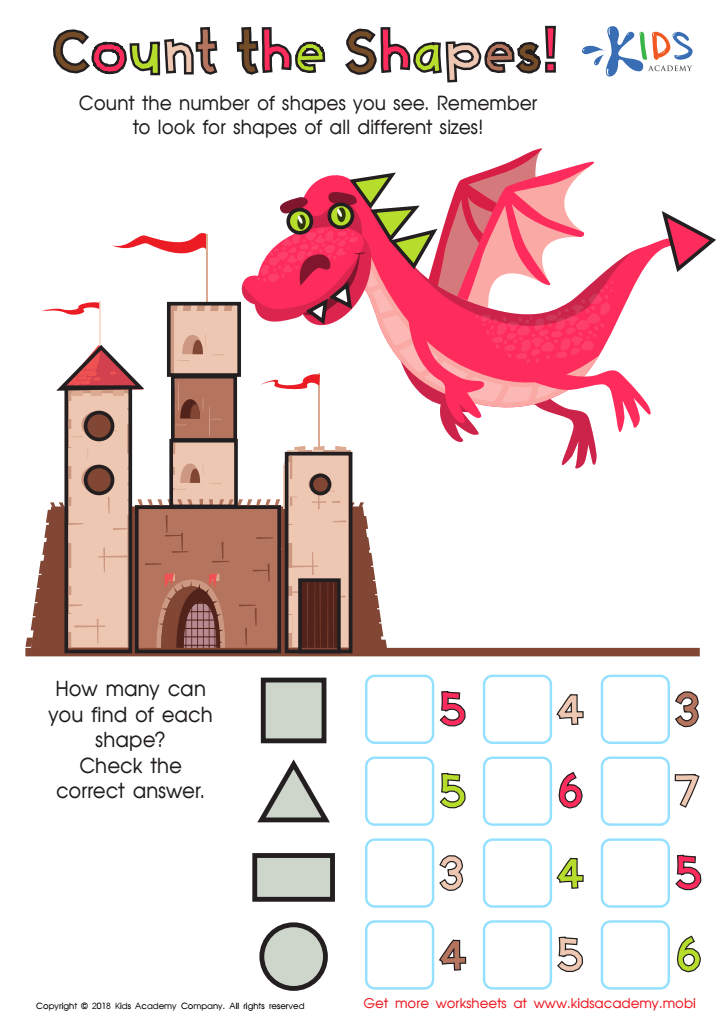

Count the Shapes Worksheet
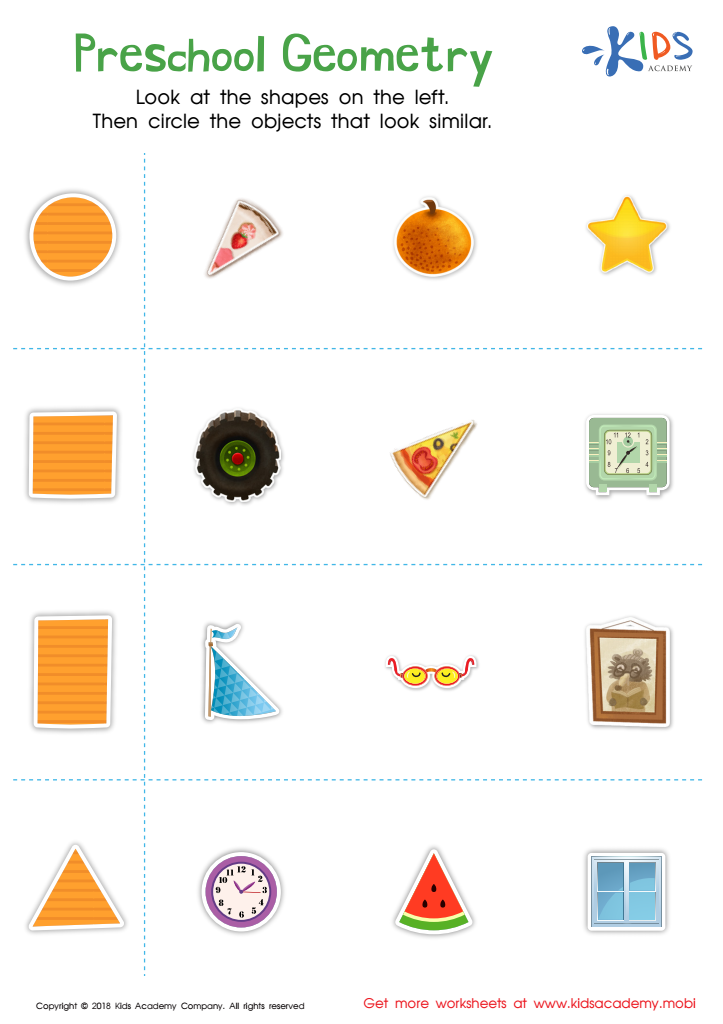

Preschool Geometry Worksheet
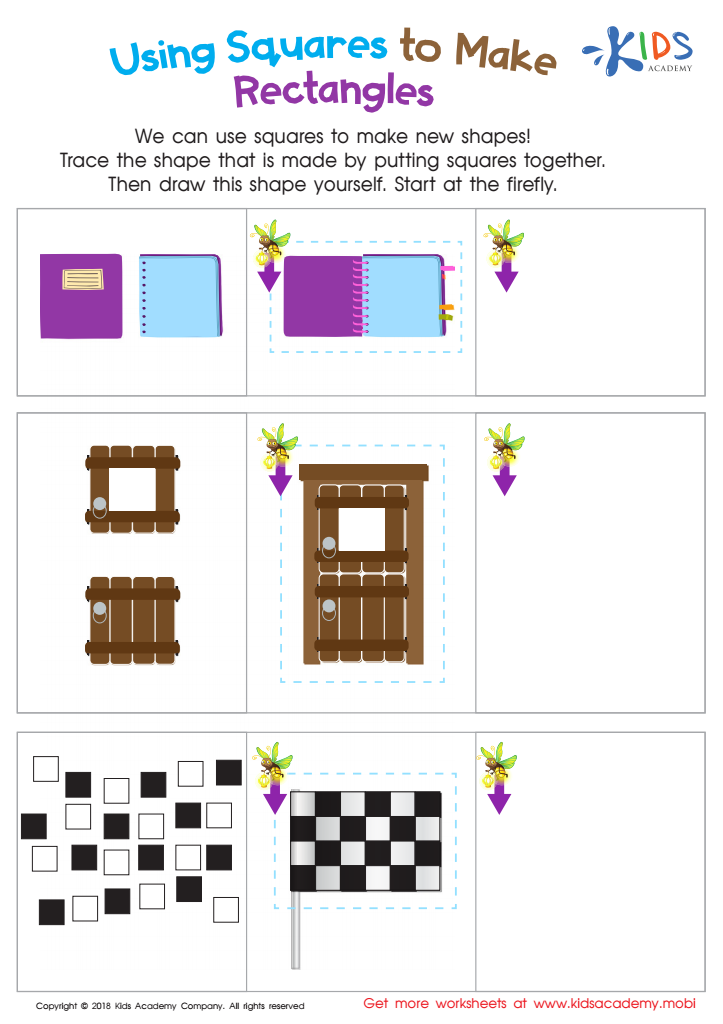

Using Squares to Make Rectangles Worksheet
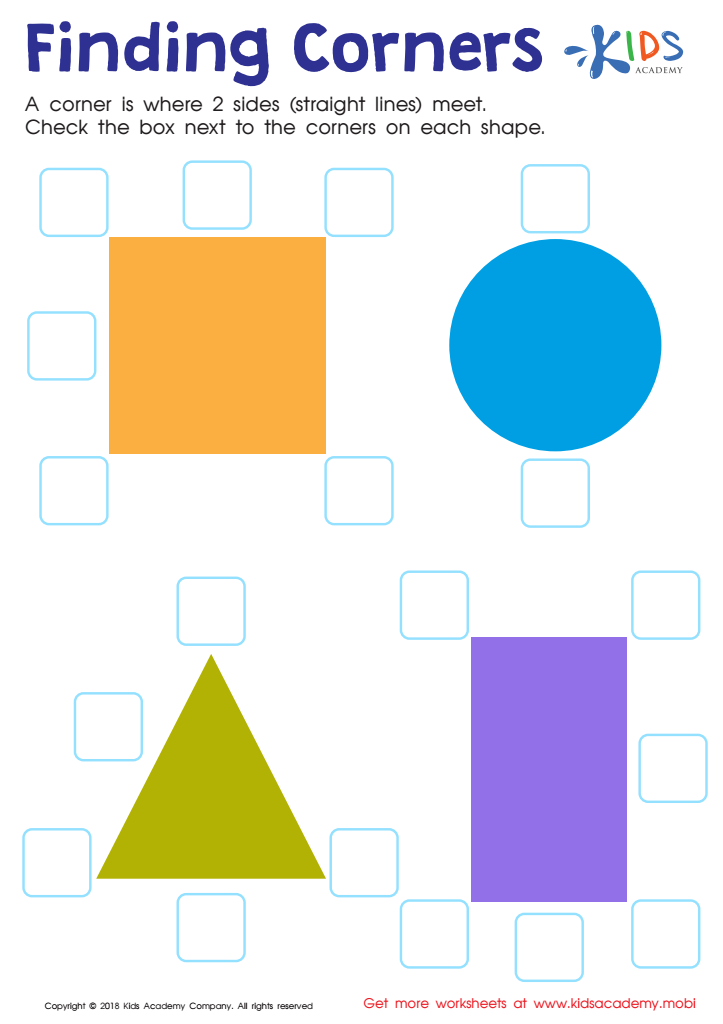

Finding Corners Worksheet
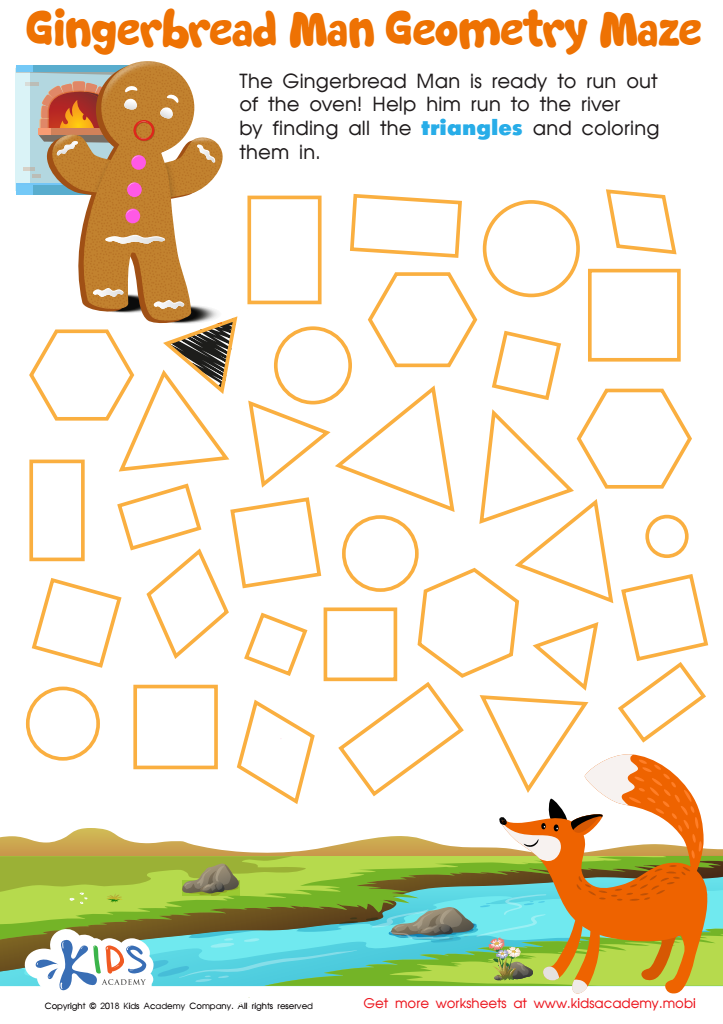

Gingerbread Man Geometry Maze Worksheet
Counting skills and an understanding of basic geometry are crucial aspects of early math education for children aged 5-8. At this age, kids are developing foundational numeracy skills that serve as the building blocks for more complex mathematical concepts in later years. Proficiency in counting helps children grasp essential skills such as addition, subtraction, and problem-solving, fostering better overall academic performance.
In parallel, introducing basic geometry concepts—such as shapes, space, and spatial relationships—enhances children's critical thinking, pattern recognition, and logical reasoning. Understanding geometric shapes not only helps with math but also encourages creativity and spatial awareness, which are applicable in art, design, and everyday life.
When parents and teachers engage with children in activities centered around counting and geometry, they promote confidence and curiosity about math, decreasing the chances of mathematical anxiety later on. Additionally, these skills contribute to strong cognitive development, laying a firm foundation for math literacy and STEM knowledge. In essence, fostering counting and geometry skills in young learners nurtures their intellectual growth, helps them navigate the world around them more effectively, and prepares them for more advanced mathematical study in the future.
 Assign to My Students
Assign to My Students











